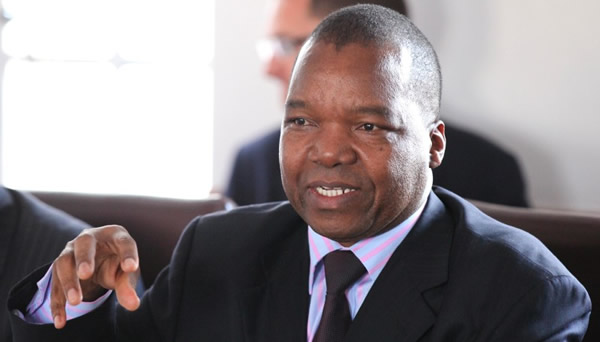Skills gap stifles growth of mining
Golden Sibanda Senior Business Reporter
The mining industry, one of Zimbabwe’s most critical sectors anticipated to drive growth in the short to medium term, does not possess sufficient knowledge to propel the economy to the required levels, according to latest research findings. It has been noted that the pervasive skills and knowledge gaps foster an operative level inadequate to take the industry to expected higher levels of job creation, valued added goods, stimulation of economy through linkages, driving growth and exports and higher tax revenue among others.
The research findings also noted the existence of capacity challenges, which it said are apparent throughout the industry, but with training institutions most severely affected. It was also noted that the skills levels of critical support institutions and stakeholders of the mining industry are still below the levels expected to deliver what the Government is expecting.
The Zimbabwe Economic Policy Analysis and Research Unit made the findings after carrying out a mining industry value chain training needs assessment survey commissioned by the Ministry of Mines and Mining Development.
Preliminary findings of the survey by ZEPARU concluded that while the country possessed most technical skills and knowledge, there were serious gaps at the functional level to drive innovation required to optimise the performance of mining.
Yet the mining industry is strategic to growth and recovery of the domestic economy as it currently accounts for 16 percent of GDP, more than half of Zimbabwe’s foreign export earnings and provides employment for an estimated 55 000 people.
The sector has generated an average of $2 billion in the last two years and remains the anchor for near term growth prospects despite low prices plaguing the commodities markets.
Despite having all mining-related technical skills, most of the study findings were that delivery (of the mining industry) level is low, adequacy of skills required by the industry is average, companies/organisations/institutions are not performing optimally due to the skills gaps/ inadequacy.
Further, the study found out that in every company/organisation/ institution, there is training needs in the industry and every segment of the value chain in the industry requires training while all competencies/skills are lacking.
Presenting the findings, Dr Maideyi Meck, who is part of the six-member research team that conducted the survey said there is need to enhance the generic knowledge to specific application to achieve expected outcomes.
“Current level of skills fosters an operative level. Nevertheless the current level of knowledge by itself is not sufficient to propel the country to the required levels,” she said.
Skills cited as lacking include geological mapping, basic computer and data processing, data management, mineral evaluation, marketing, assaying, geological, research and analytical, contract negotiation, rock mechanics, resource estimation, human resources, financial and legal drafting skills.
“The gap is on functional skills not the technical skills. The skills levels of critical support institutions and stakeholders of the mining industry remains in the knowledge tier (and so) development of human capital that understands and can evaluate is therefore necessary,” Dr Meck said.
To that end, she said there is need to take what is known and enhance the generic education to specific application to achieve the expected outcome, according to excerpts of the findings.
This could be achieved through customised training and comprehensive grooming of taught masters of technology and philosophy to inhabit the wisdom tier of innovation, product formulation, manufacture and value addition, which is tailor made to address specific needs of local industry.
The survey noted capacity challenges in terms of human capital, tools of trade, policy and support infrastructure required by the local mining industry to optimise its performance. Human capital deficiency in the sector relates to inadequate level of skills among trainers, low number of skilled and qualified labour and high skilled labour turnover leading to loss.
Issues about infrastructure entail lack of basic equipment, outdated equipment and infrastructure, lack of spares, uncompetitive prices of tools, foreign equipment difficult in servicing and limited access to latest developments information.
The study also found out that the mining sector is constrained by policies not clearly communicated or disseminated, policy inconsistency (not married to policies in other sectors) and policies not conducive to economic growth.







Comments